Simon Helberg - of “The Big Bang Theory” fame - stars alongside Meryl Streep and Hugh Grant in “Florence Foster Jenkins”, a biopic about an opera singer – without a suitable singing voice – who became famous in the 1940s. In the film, her husband, St. Clair (Grant), and her friends do not wish to hurt Florence’s (Streep) feelings, so no one tells her the frank truth about her off-key vocals, and her new pianist, Cosme McMoon (Helberg), blindly walks into this elaborate charade. Streep is a trained singer, and Helberg is an accomplished pianist, and they performed together behind the scenes and on-screen.
The Phoenix Film Festival took part in an interview call with Helberg and many other journalists (who contributed to this interview), and he spoke about his character’s motivations, his thoughts on why Florence’s friends kept up the illusion and playing music on set with Meryl Streep.
“Florence Foster Jenkins” opens on Friday, Aug. 12.
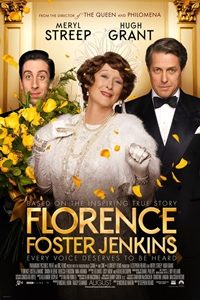 Q: What drew you to the part of Cosme McMoon?
Q: What drew you to the part of Cosme McMoon?
SH: Well, I couldn’t think of one reason why I wouldn’t be interested in or (wouldn’t) claw my way into this movie. There are the obvious people that were making it and involved in it (who) are perhaps the best ever at this, between Meryl, (director) Stephen Frears, Hugh, (composer) Alexandre Desplat, (costume designer) Consolata Boyle, and (production designer) Alan MacDonald. I mean, all I could say is that I feel like I’m accepting an award.
The script is so unique, and the scenes really speak to me. (It’s) not just the love of music, but this idea of perception and the disparity between our perception of ourselves and what other people perceive. Does it matter that we hear one voice in our head, and other people hear a different one? Maybe it all leads to the same place.
There was just something beautifully poetic about Florence’s journey. I felt that the script did an amazing job at celebrating this woman and celebrating this love and joy that she found in music.
Q: Your character (showed) tons of facial expressions. They are a huge part of your performance, and they went from very subtle to overt. In the scene when Florence first sings, were you already aware of what Meryl was going to sound like or were those expressions real?
SH: Well, both I guess. (Meryl and I) had already rehearsed (the music) for about a week and a half, and we actually recorded at Abbey Road as well, which is amazing. So, we had a lot of time to laugh and to figure out what we were doing.
Of course, they ended up wanting to shoot it all live, so all of the stuff that we recorded was kind of thrown out, and because of that, we (were) playing all of that music live as you are seeing it and as it was being shot, which I think helped. Well, it helped us contain our laughter and focus, because we had to actually get through the music, but it also made all of it very authentic.
Q: You speak with a slightly higher pitch in this film and changed up your speaking patterns. What was behind your decision to do that and is that something that you pulled from actual recordings of McMoon’s voice, or things that you researched about him?
SH: The most that I could find – in doing this research – were some facts and little tidbits of information that were in the movie, but there is a recording of him, actually. He is much older, and he talks about that night at Carnegie Hall, and I had a moment of thinking, “I don’t know how much I want to use this as inspiration.”
McMoon was probably, I think, in his 70s at that point. (His voice) was a bit different than I had pictured it, and his outlook was very different than in the script. I thought (that) you really always want to start with the script. To me, I just saw (his voice) vividly and heard him vividly in this way. I saw him as being very pure, very chaste, very innocent, and having no sense of cynicism. He hadn’t really been corrupted in any way whatsoever. There is something very chaste about him and very alien at the same time.
There’s also the fact that it was the ‘40s, and he was walking into this elevated high society, cosmopolitan lifestyle. People actually did take speech classes, and they (had) this anglicized way of talking back then. All of those things combined led me to (McMoon’s speaking patterns in the movie).
PFF: There is this great moment when McMoon asks St. Clair about his (unusual marriage) arrangement with Florence at St. Clair’s apartment. Later, McMoon speaks to Florence at his apartment, and I thought that he really wanted to insert his opinion on Florence and St. Clair’s relationship but thought better of it. He was protecting her like everyone else in the movie.
Later - at Carnegie Hall – McMoon says to Florence in a very confident voice, “We can do it.”
I think at that moment, at least to me, (the message) turned from protection to support. Is that how you see it? What do you think?
SH: Wow. You have really tapped into so many things that I thought, but I didn’t know that anyone else would necessarily pick up on. All that you said is actually something that – at some point – I was cognizant of.
There was a real moment there when I felt (that St. Clair thought or felt), “How dare you, Sir, ask me (that). Of course, I love her.”
(Later,) Florence (goes) to McMoon’s apartment, and (the audience sees) how broken that she is by St. Clair. This innocent, little McMoon is now somewhat corrupted by the harsh and strange reality of the relationship that Florence and St. Clair have with each other, and he - all of sudden - does have to step up. He does feel this protective desire.
Then, in Carnegie Hall, yes, that is the moment too. You know that Florence is scared. It’s just so beautiful the way the script is that you just see all of the colors of these people. That is his moment. He has that bond.
McMoon is the only one that understands the music, really, with her. St. Clair doesn’t. They don’t play music together. So, here is this transition from, “OK, I’ll help this woman to – you know what? Let’s do this.”
This is important not just for Florence but for McMoon. We’re in it together. We have something greater than this kind of career-minded or reputation-focused frame of mind. We have the love of music, and it doesn’t matter, nothing else matters.
Q: It is amazing to me how everyone around Florence continued to just keep up her fantasy. She was so protected. People truly did love her, but why do you think people fell in love with her so much?
SH: Well, I think that there’s almost nothing more human than failure. I think it’s funny, and it’s tragic, and it’s comforting, but only when it’s done passionately. Only when somebody is putting themselves out there genuinely and ironically and aiming for the fences and kind of falling flat, no pun intended.
I think that’s one element of it, and the fact that she was so filled with joy, so moved by music and wanted to share that joy and that love of music with people. I think it’s just magnetic. I mean, it’s like watching a little child just with total abandon singing out (loud) and dancing, and the part of your brain that has any kind of judgment or criticism of this is overwritten by the joyous part. Whether people were laughing or their jaws were on the floor, I think that they were enjoying themselves.
Q: Since the movie is a period piece based on real life events, what was the most challenging aspect of making the film?
SH: Combining the music and the acting was the most challenging part. Being hired as an actor and then having the music take over was such an enormous part of the film.
Meryl was going to sing and then (the filmmakers) wanted to do it live. For her to sing live, they needed the piano to be live, so (the music) is going to be different every time. So there is just the pressure of getting this music done live, while they’re shooting us. Working with Meryl and Stephen in this incredible movie was a built-in sort of pressure, and it was challenging.
On top of that, to find this character and to do it simultaneously, it felt (that) it’s already hard enough to play piano with two hands. So it felt (that) I had eight arms and was trying to do multiple things, but, of course, you want to be faithful to these characters, because they’re real. At the same time, there wasn’t a ton of information on them, so that was sort of liberating, because the script was “the Bible”.
Ultimately, it was great fun, even when it was sometimes brutally challenging.
Q: The world is about to find out that you are a very talented pianist from this movie, which they probably didn’t know before. What else do you wish that the world knew about you?
SH: Oh, I’m not that much of a showoff. I’m good with the piano. That’s cool. I love acting, and especially in a case like this, sometimes, it requires other talents. I’m interested in discovering what else I might be able to do. When I find things that I think I can’t do, it’s torturous sometimes, but it’s very gratifying to push through (it), and this (movie) was no exception. I did not expect that I’d be able to play all of these (musical) pieces, and there were times when I thought, “Well, this one I can’t do. Well, this one I definitely (can do), or I’m not going to get through (this one)…”
I just felt that if Meryl is going to sing all of (these songs) live, I better do my best to get there.
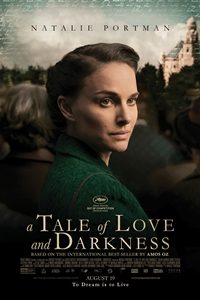 Natalie Portman shines as a master storyteller in “A Tale of Love and Darkness”
By Kaely Monahan
Natalie Portman shines as a master storyteller in “A Tale of Love and Darkness”
By Kaely Monahan
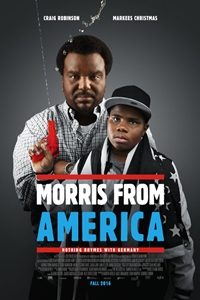 ‘Morris from America’ is a coming-of-age Christmas gift
‘Morris from America’ is a coming-of-age Christmas gift
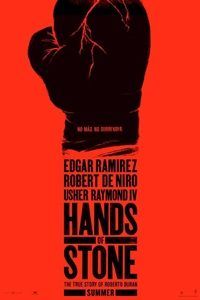 Hands of Stone
Hands of Stone
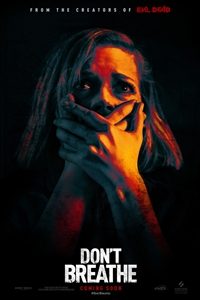 Don’t Breathe
Don’t Breathe
 ‘Southside with You’ recalls a very important first date
‘Southside with You’ recalls a very important first date
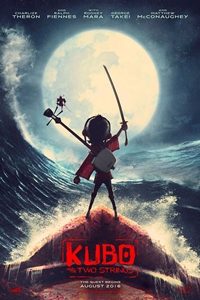 Kubo and the Two Strings – The must-see summer animated feature
By Kaely Monahan
Kubo and the Two Strings – The must-see summer animated feature
By Kaely Monahan Ben-Hur
Ben-Hur
 ‘War Dogs’ carries plenty of comedic and dramatic bite
‘War Dogs’ carries plenty of comedic and dramatic bite
 Florence Foster Jenkins: Failure to Success
Florence Foster Jenkins: Failure to Success 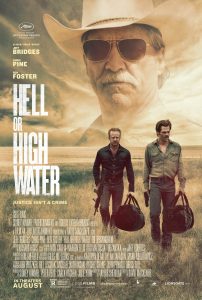 Hell or High Water
Hell or High Water
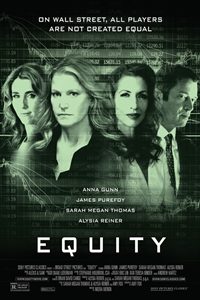 “Equity” raises plenty of capital in a female-driven Wall Street drama
“Equity” raises plenty of capital in a female-driven Wall Street drama
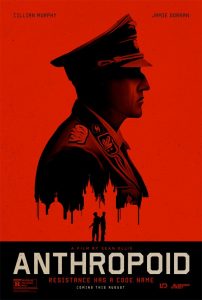 ‘Anthropoid’ doubles as a WWII thriller and an important Czech history lesson
‘Anthropoid’ doubles as a WWII thriller and an important Czech history lesson
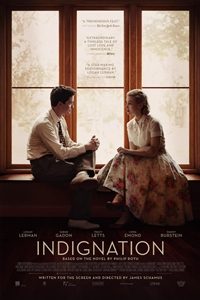 ‘Indignation’ sneaks up on us and emotionally resonates
‘Indignation’ sneaks up on us and emotionally resonates
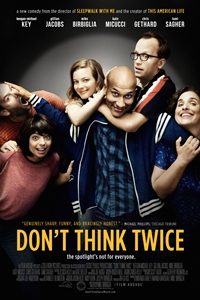 ‘Don’t Think Twice’ takes a serious look at improv comedy
‘Don’t Think Twice’ takes a serious look at improv comedy
 The Noble Villain:
The Anti-Heroes Rise in Suicide Squad
The Noble Villain:
The Anti-Heroes Rise in Suicide Squad ‘Nerve’ taps into our social media fears
‘Nerve’ taps into our social media fears
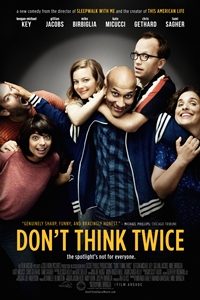 Failure is the key to success
Q&A with Don’t Think Twice cast
Failure is the key to success
Q&A with Don’t Think Twice cast







